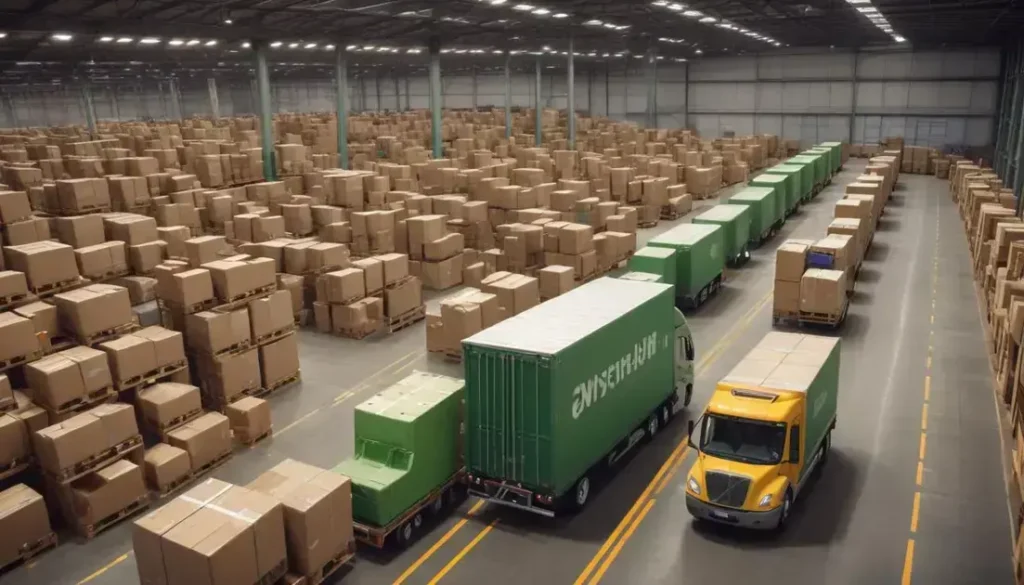Sustainability in packaging, illustrated by IKEA’s transition to paper bags, enhances brand image and meets consumer demand, significantly impacting Australian exporters by encouraging innovation and adherence to new market standards.
In a game-changing move for sustainability, IKEA is replacing plastic with paper bags, which could transform packaging standards and business practices.
Sustainability in Packaging: IKEA’s Transition
A significant shift towards sustainability is evident as IKEA phases out plastic bags in favour of paper alternatives. This decision is part of a broader trend aiming to reduce environmental impact and align with global sustainability goals. By adopting paper bags, IKEA not only addresses the concerns of eco-conscious consumers but also sets an example for the retail industry.
The move reflects the growing recognition of the importance of eco-friendly practices among businesses globally. Paper bags are biodegradable and recyclable, making them a more sustainable choice compared to their plastic counterparts. This transition illustrates how large companies can influence market trends and consumer behaviour towards more responsible choices.
Furthermore, this change is likely to affect Australian exporters significantly. As IKEA adjusts its supply chain to accommodate paper bags, local businesses may need to innovate and adapt to meet the new standards. This change presents an opportunity for Australian manufacturers to enhance their offerings by focusing on sustainable materials, ultimately benefiting the environment while capturing emerging market demand.
Impact on Australian Exporters: Exploring New Standards
The transition to sustainable packaging, such as paper bags, brings new standards that will significantly impact Australian exporters. As consumers worldwide demand more environmentally friendly options, businesses must adapt to these changes. This is particularly crucial for exporters aiming to maintain competitiveness in a rapidly evolving market.
Australian exporters may face challenges in sourcing sustainable materials, which might require adjustments in their supply chains. Embracing these new standards presents an opportunity for companies to enhance their brand image. By prioritising sustainability, exporters can attract ethically-minded consumers and establish themselves as leaders in the industry.
Moreover, compliance with sustainability initiatives may open doors to international markets that have stringent regulations. Exporters who align with these eco-friendly practices could gain a competitive edge, accessing regions where sustainable sourcing is increasingly valued. Additionally, collaboration with local suppliers who focus on sustainable practices can further foster innovation.
In this changing landscape, Australian exporters must not only adapt to new packaging standards but also anticipate future trends. Continuous research and development into sustainable solutions will be key to long-term success and resilience in the global marketplace.
In summary, adapting to new sustainability standards is essential
The shift to paper bags and other eco-friendly packaging will shape the future for Australian exporters. These changes not only meet consumer demand but also align with global sustainability objectives.
As exporters embrace these new standards, they will enhance their market presence and appeal to conscientious consumers. By prioritising sustainability, businesses can find new opportunities and strengthen their position in the market.
It’s crucial for Australian exporters to stay ahead of the curve and innovate in their practices. The drive towards a greener future represents not just a challenge, but a chance for growth and success.
Common Questions About Sustainability in Packaging
What are the benefits of switching to paper bags for businesses?
Switching to paper bags helps reduce environmental impact and appeals to eco-conscious consumers, enhancing the brand’s image and market competitiveness.
How will new packaging standards affect Australian exporters?
New standards may require exporters to adapt their supply chains, but this also provides opportunities to innovate with sustainable materials.
Can the use of sustainable packaging attract more customers?
Yes, many customers prefer brands that prioritise sustainability, leading to increased customer loyalty and sales.
What challenges might businesses face during this transition?
Challenges include sourcing sustainable materials, adjusting production processes, and ensuring compliance with new regulations.
How can companies communicate their sustainability efforts to consumers?
Companies can share their sustainability initiatives through marketing campaigns, transparent communication, and by highlighting the benefits of their eco-friendly practices.
Is it cost-effective for small businesses to adopt sustainable packaging?
While the initial investment may be higher, sustainable packaging can lead to long-term savings and improved customer loyalty, making it a worthwhile investment.


